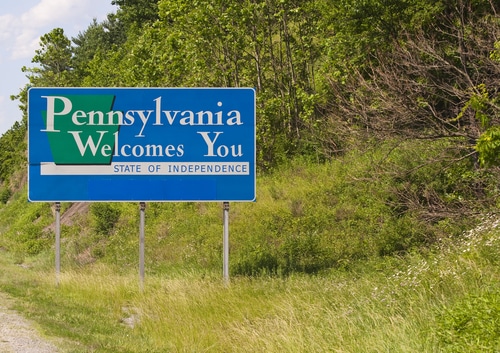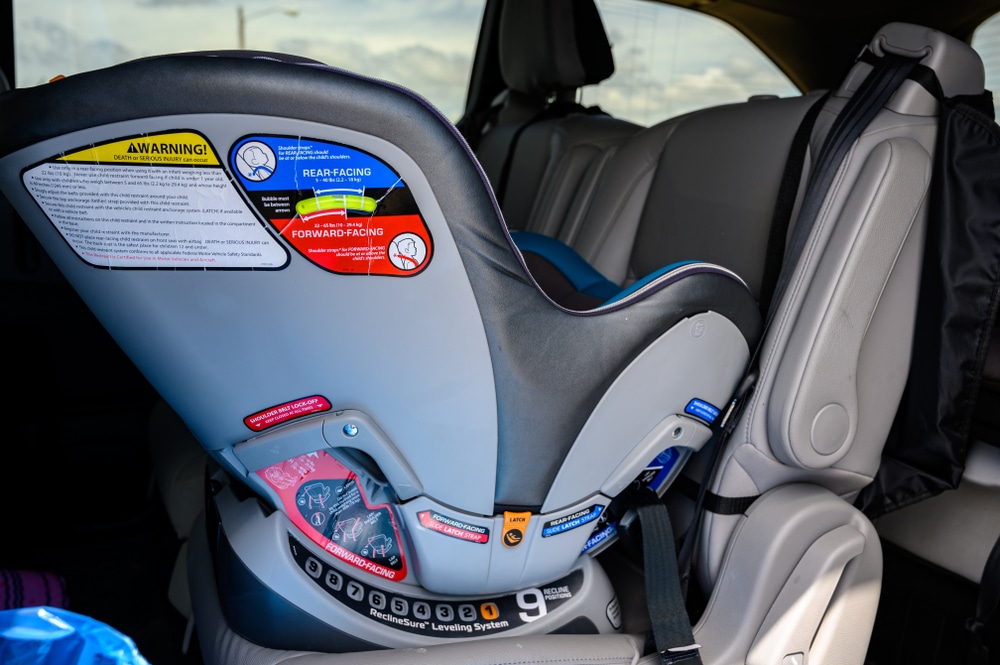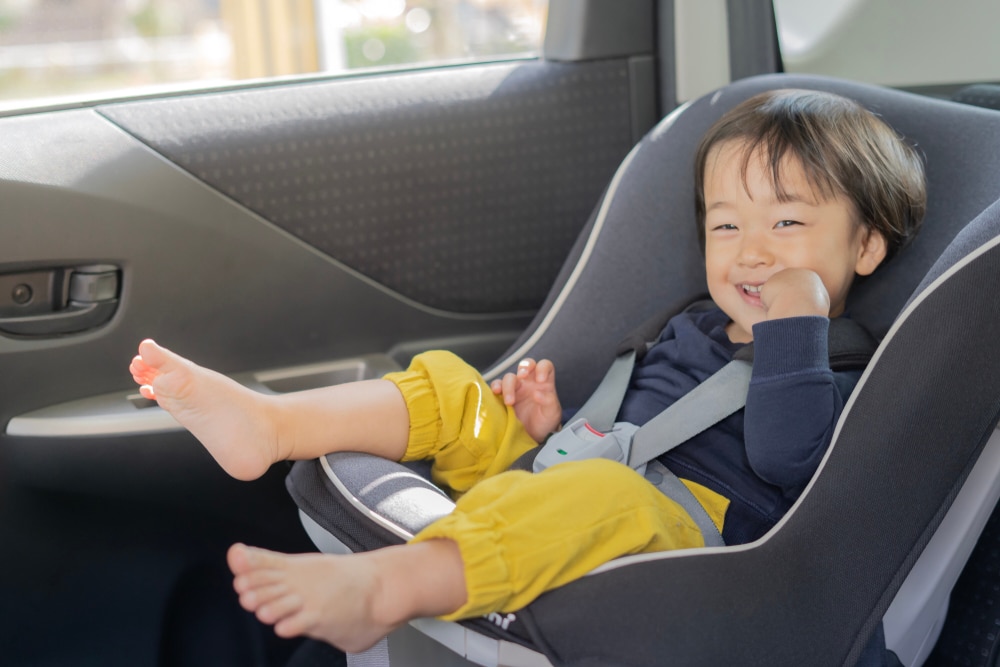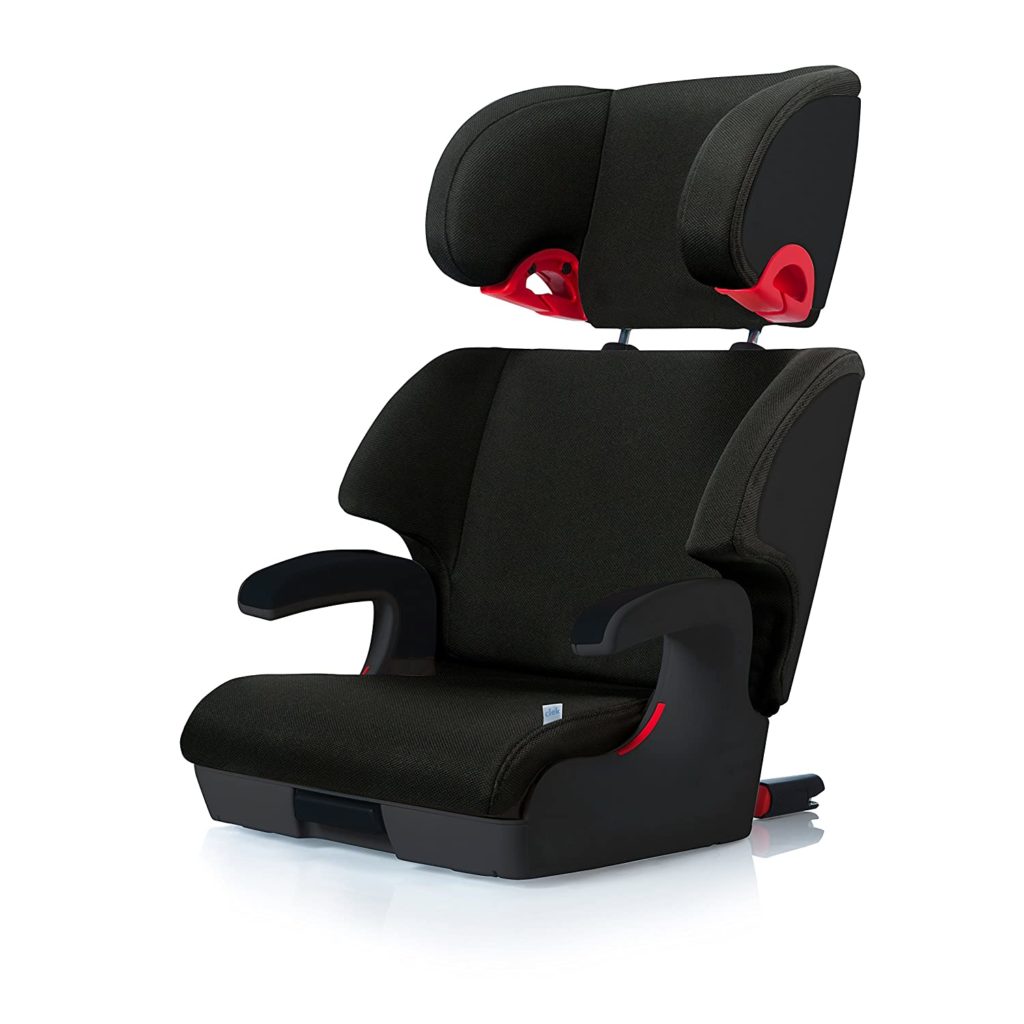When driving, your child’s safety is imperative. It’s easy to assume that all you need is a car seat to help prop them up, but you must also take into consideration the various state laws on car seats.
The laws in Pennsylvania regarding car seats affect how you transport your child from their birth to age eight. Knowing what kind of car seats you’re required to use and for how long can help you keep your child safe. But it can also help you remain on the right side of the law.

What Are the Pennsylvania Car Seat Laws?
Pennsylvania car seat laws are straightforward and standard for child safety.
- Children two years old and under must ride in a rear-facing car seat in the back seat of the car.
- Children four years old and under must ride in a properly restrained and approved car seat.
- Children between the ages of four and eight must ride in the appropriate booster seat.
- Children eight years and older must wear a seat belt.
All children under eight years old must ride in a car seat or booster seat in the back of the vehicle.
Rear-Facing Car Seats

Rear-facing car seats primarily protect infants. Depending on the make of the car seat, your child can safely ride in a rear-facing seat until they are about 35 pounds or 35 inches tall. Some makes will allow for slightly longer or heavier children. Refer to your car seat specifications to ensure your child can ride safely.
There are certain specifications for using a rear-facing seat. First, it must recline so that the infant’s head does not fall forward. Second, proper connection to lower anchors or the seat belt should keep it secure. A good installation means the car seat should not be able to move further than one inch.
It is also important that a rear-facing seat does not include products that haven’t been crash-tested, such as dangling toys. Certain products approved by the manufacturer are safe to use with the seat.
According to the rear-facing car seat laws of PA, all children under two years old must ride in a rear-facing car seat. Only after they have outgrown their rear-facing seat may a child graduate to a front-facing one.
An infant is better protected from potential injury when it sits in a rear-facing seat. Children up to age four can also benefit from a rear-facing car seat, as long as they are under the limit of height and weight restrictions.
Forward-Facing Car Seats

A forward-facing car seat should have a five-point harness for best protection and comfort. The Pennsylvania state recommends the harness height must be at or above shoulder level, with the chest clip level with the armpits. The straps, for all car seats, must be snug.
A forward-facing seat must rest in the upright position to work effectively. Installation must also be secure with the car seat tethered to anchors or the seat belt to ensure maximum protection for your child.
If you have a convertible car seat, you may use the same seat up until your child no longer needs one. Depending on the kind of convertible you have, the model can accommodate from infancy to booster seat size.
If your child continues to fit the requirements for the convertible, you may use the same seat throughout their childhood. Fitting the requirements means the seat offers the correct support and protection.
Booster Seats

PA car seat laws dictate that all children from ages four to eight must ride in a booster seat. However, if the child does not fit the weight or height requirements, they can remain in a forward-facing, five-point harness seat until they grow.
Booster seats accommodate children over four or who are over forty pounds. Until the child can fit a seat belt, they must sit on a booster for their safety.
Children who are eight years old or older, or 57 inches tall or 80 pounds, are allowed to use shoulder and lap seat belts per booster seat laws in PA. If they are eight years old and too small for a seat belt to fit them properly, they must be in a car or booster seat.
Similarly, if a child is older but too small to use a seat belt, they should continue to use a booster seat. Boosters help raise the child to the point where a seat belt can safely restrain them if necessary. If they stop using a booster seat before they’re ready, the seat belt will not protect them as designed, and they could become seriously injured in the event of a car crash.
Car Seat Recommendations
It is not against the Pennsylvania car seat laws to let your child ride in the front if they are between three and eight years old. However, it is still highly recommended that you always keep your car or booster seat in the rear of your car.
Keeping your child in the back seat will protect them in case of a collision, where they will be safe from the airbags. Airbags can seriously harm or even suffocate your child, so as an extra precaution, it is best to have your car seats and booster seats in the back at all times.
No matter what car seat your child uses, they must fit the height and weight requirements. If they are too big or too small for their car seat, they will not be as well protected if an accident occurs. Keeping your child in a rear-facing seat for as long as possible will offer more protection than switching too soon to a forward-facing one.
As long as your child is small enough to use a rear-facing seat, there is no need to purchase a forward-facing one, even if they are older than the recommended age limit.
Convertible car seats, in particular, can accommodate for longer rear-facing use. As they are typically larger, convertibles can be used for front or rear-facing and will protect your child in a rear-facing position for longer than a typical rear-facing car seat would.
Pennsylvania car seat laws require proper buckling of seat belts if the child or car seat uses them. Whether your child uses a high-back booster seat or a backless booster, you must strap them in safely.
Car seat inspections are available if you want the extra reassurance that your child is safe. Inspectors will make sure you have installed the car seat properly and that it will not pose a danger to your child.
Conclusion
In the state of Pennsylvania, infant car seats, child car seats, and booster seats are required by law until your child is big enough for a seat belt. Infants two and under must ride in a rear-facing car seat for better protection. Children four years old and under may ride in a rear or front-facing seat. Children between the ages of four and eight must use a booster seat.
Proper use of all car seats is necessary. Children must fit the weight and height requirements of their car seats. If they are too small or too large for their seat, they must ride in another ideal for their size.






